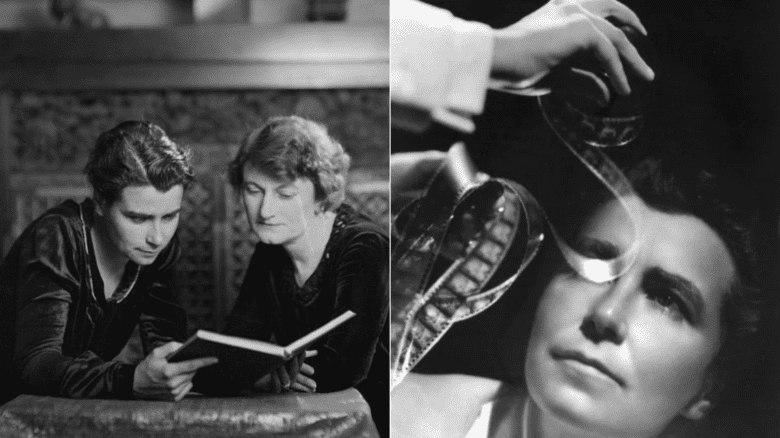This story is part of Seeing Red, a month-long series exploring periods from an LGBTQ2 perspective.
If I’m only having sex with women do I need to worry about STIs? What’s up with period sex and STIs? I’m a trans woman on HRT — is having period-like symptoms normal? OB/GYN Dr Helena Frecker answers your questions in part one of “Ask an Expert.”
Full transcript
[00:00:00] Hello, my name is Helena Frecker. I am an Obstetrician and Gynecologist. I work in Toronto and I’m here to answer some questions about reproductive health and sexual health for Xtra.
[00:00:16] If I’m only having sex with women do I need to worry about STIs?
[00:00:20] Short answer, yes. The risk of STIs in women having sex with women is for sure less than women having sex with men and men having sex with men but that doesn’t mean it’s nonexistent. And you should take precautions and know the sexual history of your partner. For instance any kind of hand-to-genital or genital-to-genital touching can transmit skin transmittable STI such as Human Papillomavirus (HPV) which causes genital warts and causes abnormal cells on the cervix on your pap smears and you can transmit herpes in that way as well. So you have to be very careful about knowing your partner’s history and knowing your risk before you engage in sexual activity. The other thing is any sharing of cervical or vaginal secretions can transmit things like gonorrhea, like chlamydia, like trichomoniasis and, you know, in rare circumstances hepatitis B, hepatitis C and HIV. So that’s things like sharing sex toys: so you want to make sure that you’re washing your sex toys between each partner using them, using condoms on the sex toys and you know, just understanding people’s sexual history particularly if there’s any risk of mixing of cervical or vaginal secretions. Another thing to consider is actual barriers that can be put in place to protect yourself such as wearing either latex or nitrile gloves on your hands or even using a barrier like a dental dam or a female condom.
[00:01:41] What’s up with period sex and STIs? Can you transmit them through period sex or oral sex on your period?
[00:01:47] The answer is yes. Whether or not being on your period puts you at a higher risk for STIs, not sure that there is super strong evidence for that but you can definitely think of two circumstances where that might put you in a little bit more danger. So one, is when you’re on your period your cervix is open. You don’t have that thick cervical mucus to protect your upper genital tract like your uterus and fallopian tubes and ovaries from infections that are inside the vagina. So that could put you at a higher risk of something called pelvic inflammatory disease. If you were to be exposed to an infection during intercourse or during sexual activity the other thing to consider is if you are a giver of oral sex to someone who is on their period that your likelihood of contracting a blood-borne illness like hepatitis or HIV is marginally increased particularly if you were to have an open sore or cut in your mouth under those circumstances.
[00:02:38] I am a trans woman on hormone replacement therapy and I’m having period like-symptoms. Is that normal?
[00:02:43] Well it depends on the symptoms. So if you’re on estrogen therapy there are certain side effects of estrogen therapy that can mimic some symptoms that for instance assist woman might have on her period. So side effects of estrogen therapy can include nausea, can include headaches, and can include breast tenderness and all of those can be experienced on a period for a cis woman as well. There are certain side effects: if you’re taking progesterone in addition to estrogen some people can have sort of a bloating sensation that could mimic something you would feel on your period. But if the question is is bleeding normal when I’m taking hormone replacement therapy as a trans woman the answer is most definitely no. And especially if you’ve had a gender-affirming surgery such as the vaginoplasty and you’re experiencing bleeding that’s something to talk to your care provider about.
[00:03:28] I feel like my doctor is trivializing my period pain or symptoms. How do I speak to my doctor so that they take my concerns seriously?
[00:03:35] That’s a tough one. And some doctors are just better listeners than others because doctors are just people like anybody else. But I think in terms of you taking charge of your own health and taking charge of each appointment with your doctor it’s important to be open and honest. It’s important to tell them what are your goals and what are your priorities for that particular appointment and for your care overall. Advocate for yourself, and if they’re still not listening or if they’re still not hearing you out, ask for a referral to another doctor.
This story is part of Seeing Red, a month-long series exploring periods from an LGBTQ2 perspective.

 Why you can trust Xtra
Why you can trust Xtra


